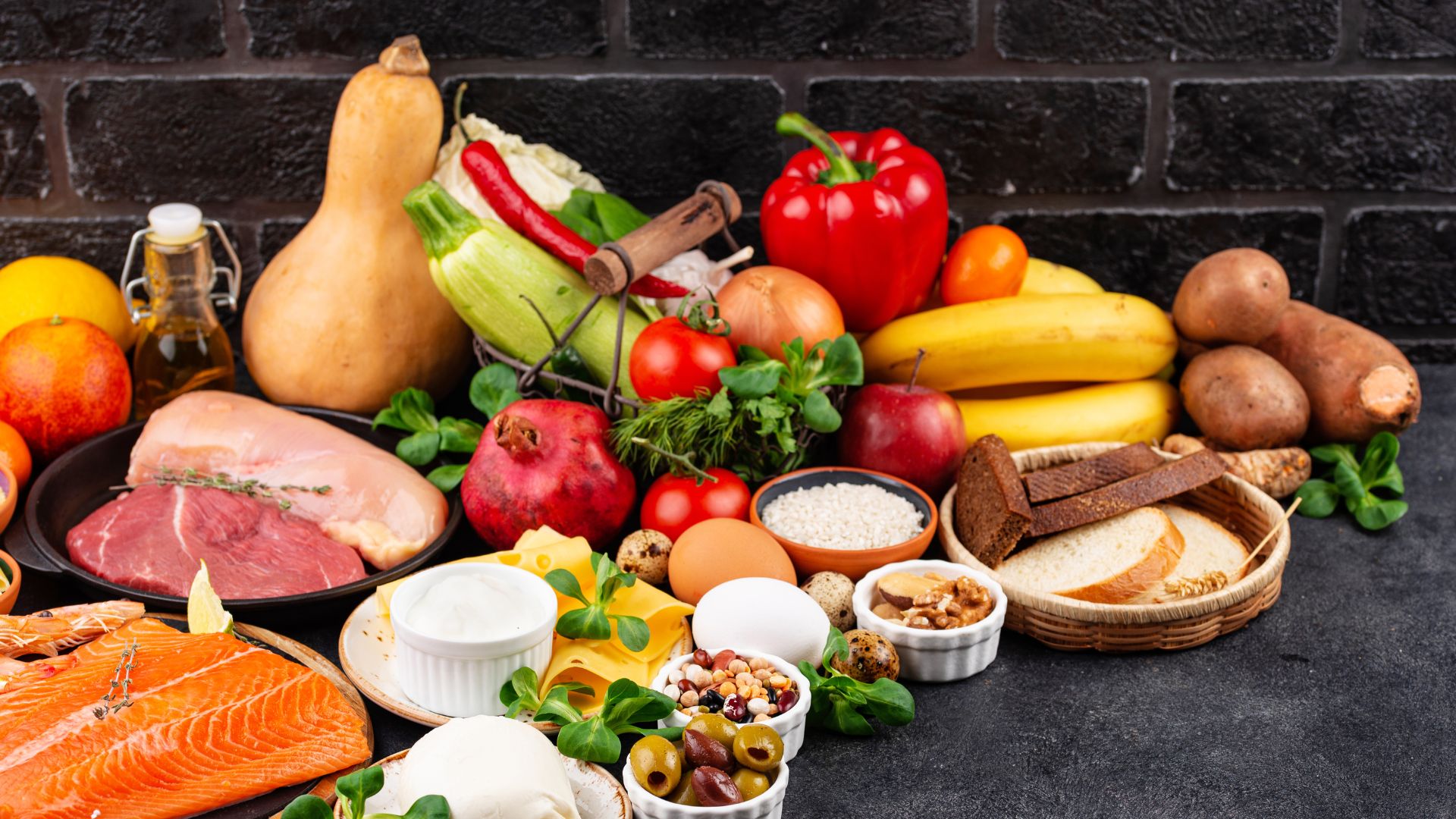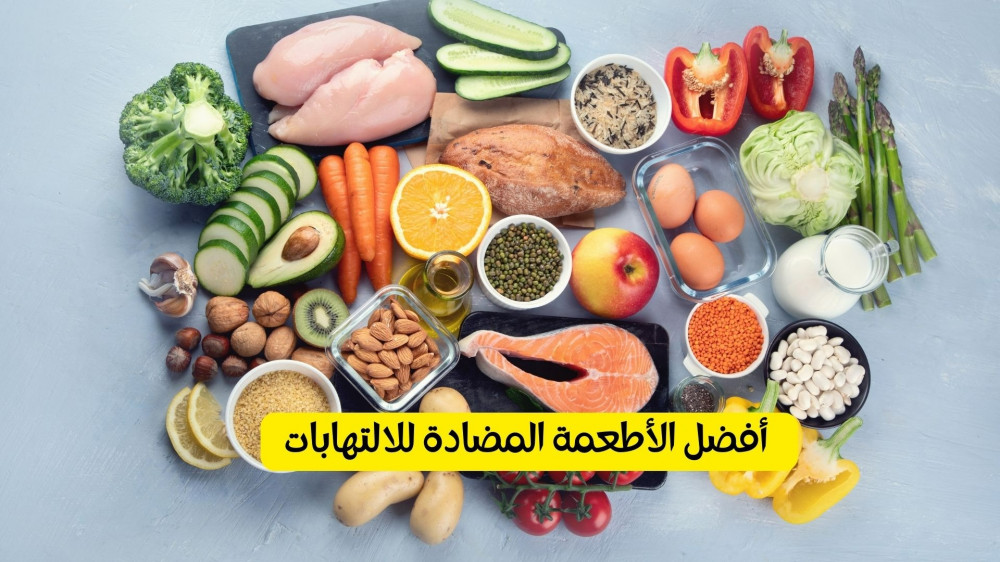The best anti-inflammatory foods
Anti-inflammatory foods have quite a few benefits, including properties that help boost your immune system and reduce inflammation. Health conditions, including cancer, heart disease, diabetes, arthritis and depression, are among those associated with chronic inflammation
An anti-inflammatory diet may be one way to counter inflammation in the body. Foods high in antioxidants, which work to prevent cell damage, may help.
We will learn about the most important foods that are classified as among the most powerful anti-inflammatory foods:

1- Almonds:
Almonds are a great source of (healthy) monounsaturated fats, vitamin E and manganese. It is also rich in magnesium and vegetable protein.
Research studies have conducted where eating almonds has been linked to a lower risk of heart disease because they may improve the balance of fatty acids in the blood.
Almonds can also make you feel "full." It's slightly higher in calories than many other anti-inflammatory foods, but eating a handful of it may help you stick to a healthy weight loss plan.
2- Ain al-Jamal:
Walnuts are a good source of healthy fats, protein, vitamin E, minerals and phytochemicals called sterols. They also contain monounsaturated and omega-3 fatty acids that are good for your heart.
Walnuts are also high in energy, so you may need to watch your serving size. Although they are high in calories, a handful of them can help you feel full longer. In this way, it may actually help you lose weight while fighting inflammation.
3- Avocado:
Avocados are an anti-inflammatory food and rich in heart-healthy fats. It is also a good source of magnesium, fiber and potassium.
Half an avocado adds well to your daily intake of vitamins C, A, E and B-complex.
It is also low in sodium.
Avocados also contain polyphenols, which act as antioxidants. Antioxidants fight cell damage in the body.
4- Berries:
Blueberries contain a lot of polyphenols and also contain compounds (flavonoids, anthocyanins and phenolic acids), which work to prevent and repair cell damage. Blueberries are considered to contain a high percentage of antioxidants, which help in preventing cancer and heart disease.
Laboratory studies show that chemicals in blueberries may also slow the growth of cancer cells and reduce inflammation
Berries also add vitamin C, vitamin E and fiber to your daily diet. What distinguishes them is that they are also low in calories and their sugar content is low, which makes them a safe choice for people with blood diabetes and also for those who follow the keto diet.
5- Orange:
Oranges are a great source of vitamin C, which is essential for immune system function and potassium. They also contain fibre, calcium and folate. The fiber and folate found in oranges may help keep your heart healthy. It also builds strong connective tissue and keeps blood vessels healthy.
Oranges and orange juice are excellent in an anti-inflammatory diet, but it is preferable to eat them rather than buy them to benefit as much as possible from their benefits.
6- Broccoli:
Broccoli belongs to the cruciferous vegetable family. It is high in phytochemicals called glucosinolates. Phytochemicals are plant antioxidants.
Broccoli is also an excellent source of vitamin C, potassium, calcium and vitamin A, in addition to its many beneficial nutrients. It is also low in calories.
Studies show that eating a diet rich in cruciferous vegetables, including broccoli, is associated with a lower risk of some types of cancer.
7- Carrots:
Beta carotene is one of the main reasons why carrots are an anti-inflammatory food. Beta carotene, a powerful antioxidant, turns into vitamin A in the body.
Carrots also contain zeaxanthin and lutein. A diet rich in these antioxidants may help reduce the risk of cancer by preventing damage to healthy cells in the body.
Since carrots are low in calories and a good source of fiber, you can add them in quantities that suit you during your diet if you want to lose weight and prevent obesity. Obesity is a risk factor for heart disease, diabetes, and some types of cancer.
8- Beans:
Beans are an excellent source of vegetable protein, minerals, vitamin K and the B-complex. They are also full of fiber and contain polyphenols that act as antioxidants.
Since beans are high in protein, they are ideal for meat-free meals.
Research suggests that beans are an anti-inflammatory food and may prevent some types of heart disease, diabetes, and high blood pressure.
9- Cabbage:
Cabbage is an excellent source of vitamins A, C, and K. It is also rich in calcium, iron, magnesium and potassium. Cabbage is low in sodium and calories. Added benefit: Cabbage contains a little fiber.
Cabbage contains glucosinolates that may help prevent cancer. It also contains lutein and zeaxanthin, which may help reduce the risk of cataracts.
10- Sweet potatoes:
Sweet potatoes are rich in vitamins and minerals. Like most orange vegetables, it is high in vitamin A and beta-carotene, a powerful antioxidant. Sweet potatoes are also an excellent source of vitamins C and K, potassium, and B-complex vitamins. It also has a lot of fiber and is not very high in calories.
11- Spinach:
Spinach is another anti-inflammatory food and is one of the best known. It contains lutein, which is related to vitamin A and beta-carotene. Spinach also gives you iron, vitamin K and folate. It is very low in calories, so it may aid in weight loss.
Research shows that people who eat green leafy vegetables such as spinach may have a lower risk of developing macular degeneration.
12- Olive oil:
Olive oil is rich in monounsaturated fats that are beneficial for blood vessels. It also contains polyphenols, which protect the body's cells and help prevent some types of cancer. Olive oil also helps reduce inflammation. It reduces harmful cholesterol.
It's easy to include more of this anti-inflammatory food in your diet because it's so versatile and can be used cooked, especially in recipes, or eaten raw.
References:
www.medicalhealth.com

